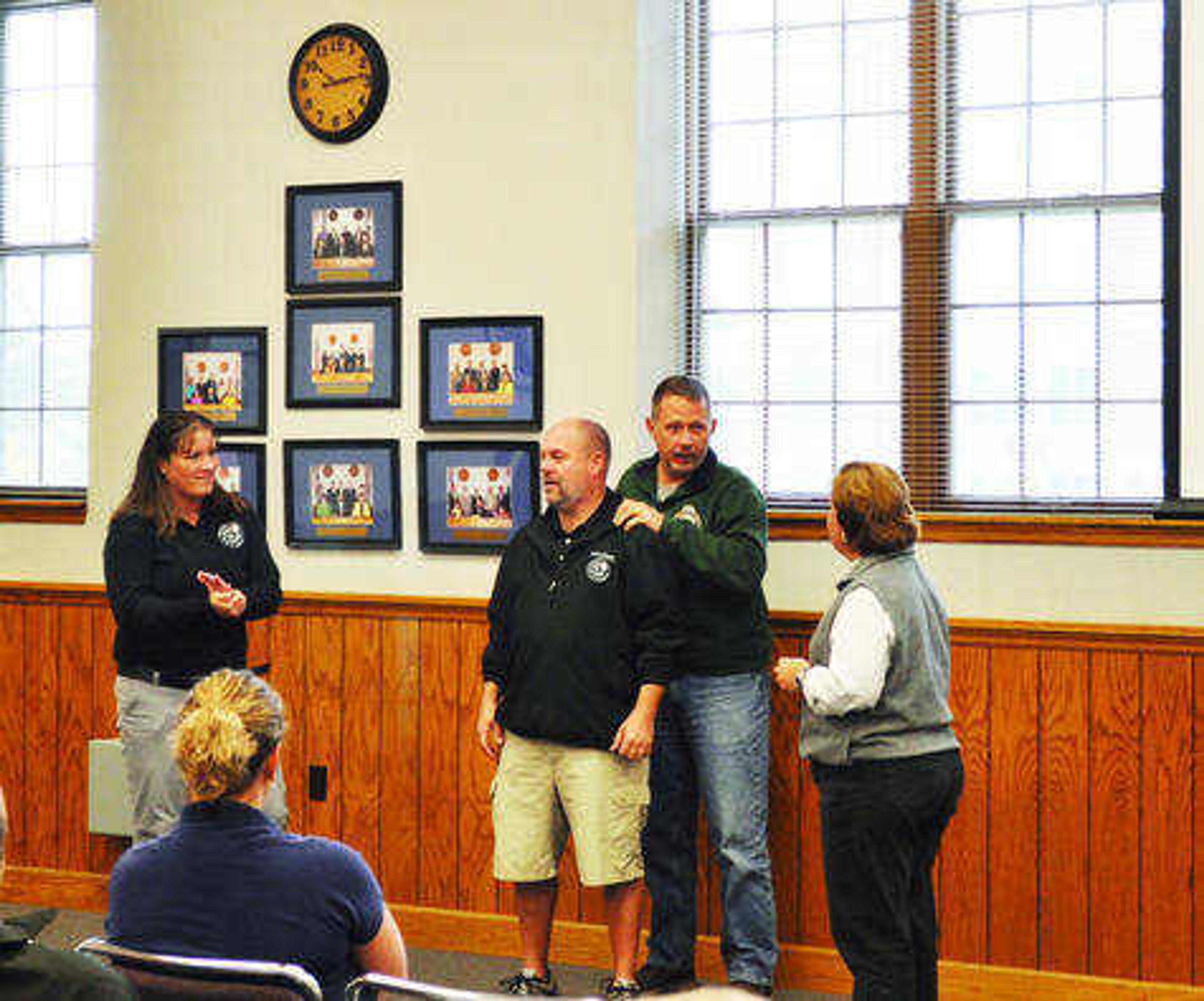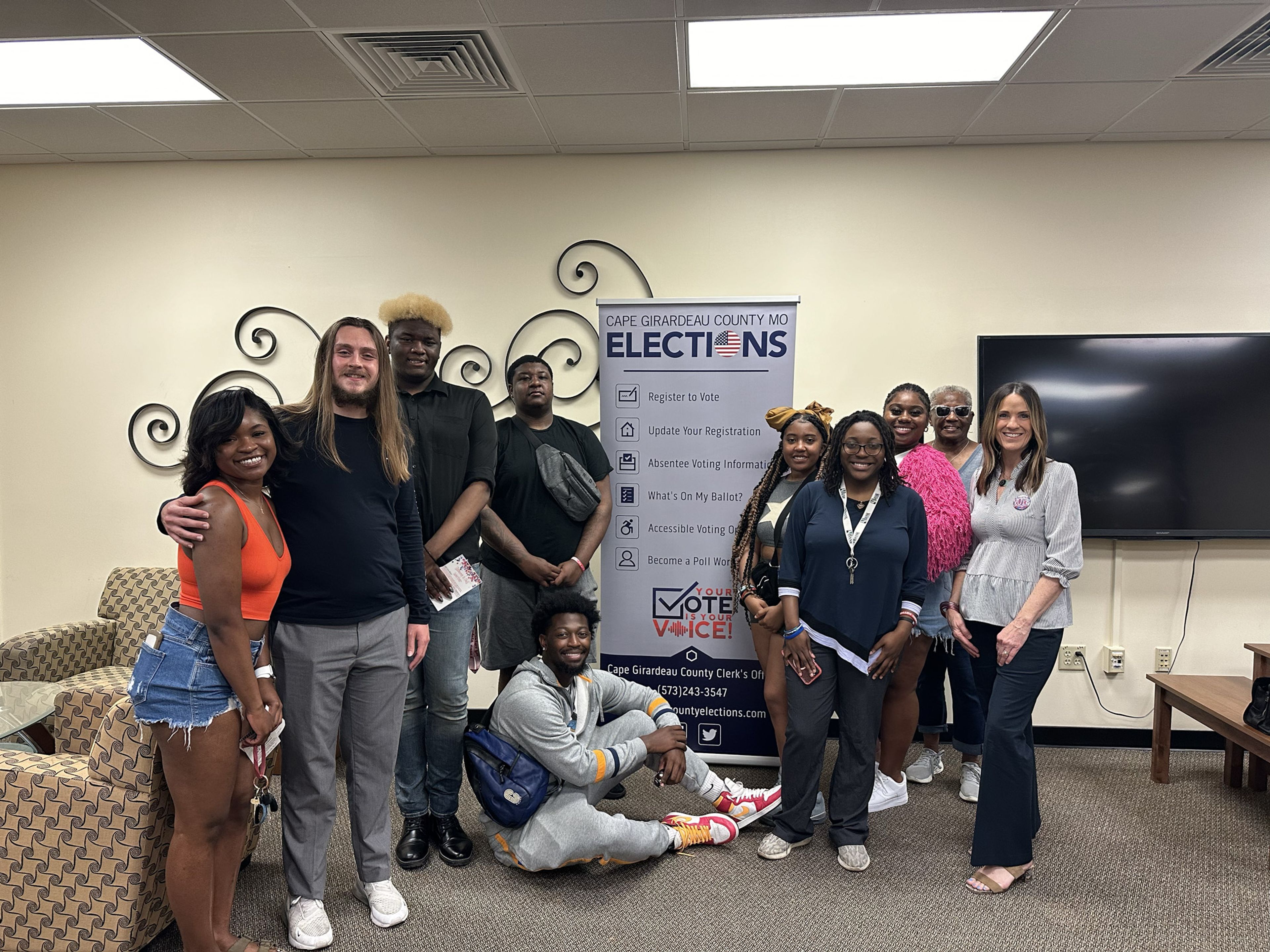When a shooter enters a building the most common action is to lock down and hide. This lesson has been very popular in classrooms, especially, but that is no longer considered to be the best response. An active shooter is no longer being called a shooter, but an active killer, because of his or her intent to kill. People are now being trained with a more up-to-date program known as ALICE for what to do when a situation becomes dangerous.
ALICE is changing the way people respond to active killers in their work, school, hospital or place of worship. Alert, Lockdown, Inform, Counter and Evacuate are the five steps that are being taught to thousands of people around the United States.
Lt. Kenny Mayberry has been working to inform people about ALICE since 2008. He has been involved in law enforcement for 30 years and worked with Southeast Missouri State University for the last 24 years. He and Sgt. Tom Bradley will be instructing Southeast's first ALICE training course of the year. Student Government Association will be hosting two training sessions this year.
According to Paige Steinhoff, SGA university affairs committee chair, the organization first partnered with the ALICE instructors last year. It is hosted by SGA and the Student Activities Council, and they will have two hour-long training sessions. One session, specified for faculty and staff, will be at noon on Wednesday and then another one for students will occur at noon on Nov. 6. Both programs will be held in the University Center Program Lounge.
There is not a mandatory class in place for Southeast faculty or staff but all are encouraged to attend upcoming seminars.
Steinhoff said the Program Lounge holds approximately 60 people and by partnering with SAC for this workshop they hope to have the best turnout yet.
Mayberry said this seminar has become popular since the Sandy Hook school shooting in December. ALICE is meant to prepare and empower people so that they can survive an active killer.
"The ALICE program is all about empowerment, it's all about options," Mayberry said. "We don't give a 'check-in-the-box type response,' it's all about options and, again, empowerment."
Mayberry explained that several different levels of ALICE training exists. There is a two-hour program, four-hour program, six-hour program and a day-long program.
"We started teaching at Southeast in 2008, primarily in the Residence Life area and then moving into recreation sports, and then the University Center and then eventually started training at the common hours and teaming up with student government doing special training sessions," Mayberry said.
The program continued to expand with Southeast's Department of Public Safety working with the continuing education program at Southeast. The department provided open enrollment dates for anyone to attend the program. Mayberry and his team presented the ALICE program to the executive staff at Southeast in 2010 and after being approved, Mayberry can now present the course to the university's service region with that staff's support.
"Typically what we try to do when we go out to the service regions, to the schools in the area, like to any school district K-12 we go and we talk with all the administrators first. ... We go into fifth grade and up with the full program. From fifth down to pre-k it's basically just like stranger danger. It adds on to the stranger danger program. We talk more to the instructors, the teachers and their aids and how they can convey to the students what they need to do during some type of event of a violent nature," Mayberry said.
The ALICE program is versatile because it can be applied to any event in any situation, not just a residence hall or classroom. Mayberry and Steinhoff both urge students to attend the workshop next Wednesday. This will be Steinhoff's first opportunity to experience the ALICE training.
"I'm excited as a future educator, I see the need of knowing what to do and being prepared to aid in my own defense as well as my future students' defense," Steinhoff said.





